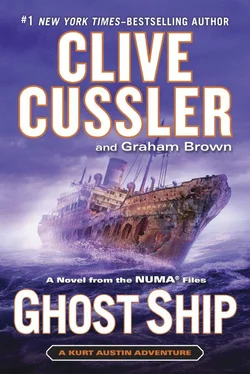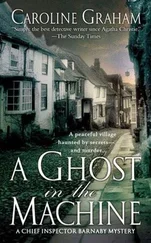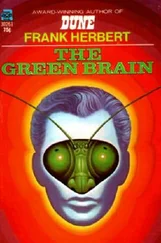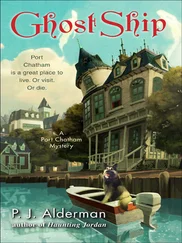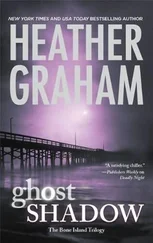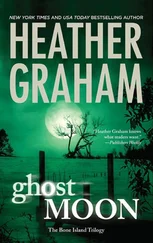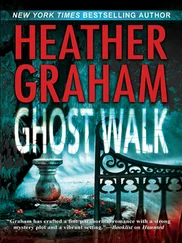Joe knew his help was needed, but if he left the hut the hostages would be utterly alone and defenseless.
He studied the action a moment longer. It was all going on down the hill from where they were, with the sounds of another battle raging at the main house. But to his right, out to the south, all was quiet.
“Time to go,” he said. “Don’t want to miss the bus.” He began waving them up to the door, pointing to the right, where it was dark and quiet. “There’s a wall about seventy yards away. Get to it, climb over it, and keep going. Don’t stop until you’re at least a thousand yards from here and you’ve found some kind of shelter. A ditch, some bushes, a stand of those weird trees, anything that can hide you.”
He handed Montresor the green flare. “If you see any helicopters overhead, light this and hold it up. They’ll know you’re the hostages and not enemy combatants.”
As Montresor and the others gathered around the door, Joe took another look outside.
“What about my mom?” Tanner Westgate asked. “Kurt will find her,” Joe said. “You can count on that.” The little faces streaked with tears clutched at Joe’s heart.
When each of the young children was holding hands with an adult, Joe snuck forward, made sure the path was clear, and then waved them out.
He led them about halfway, and when he was certain they were clear of the firefight he pointed toward the wall. “Go,” he said, urging them forward, “get over that wall and don’t look back.”
As the prisoners scrambled into the darkness, Joe turned back toward the sounds of engagement. Gazing down the hill, he could see the firefight in all its nighttime iridescent glory. From the tracer fire it was clear that Lt. Brooks and his men were getting shot to pieces from three sides as thirty or forty of Brèvard’s men slowly closed in around them.
Joe began to move forward. “Unbelievable,” he whispered. “All this time I’ve been waiting to call in the cavalry and it turns out I am the cavalry .”
With that thought in mind, he pressed forward, unsure of what, if anything, he might achieve.
As the chaos outside grew, Kurt and Calista found themselves in a running battle with the rest of Brèvard’s men. They’d made it down one hall, with Kurt laying down a suppressing fire to keep those behind them at bay, only to run smack into a second group coming the other way.
Now, halfway to the control room, they were caught in cross fire, with shots coming at them from both ends of the hall.
“Get behind me,” Kurt said to Calista as he returned fire. “You should have given me a gun,” she said.
“I had my reasons,” Kurt said.
“How do those reasons sound now?”
“Not as good as they did back then,” he admitted. With little cover beyond an old wooden credenza, Kurt had to keep up a steady rate of fire to keep their enemies back. A blue digital counter on the top of the gun told him the status of his ammo. It hit zero rather quickly and he changed clips.
Realizing they had to get out of this battle before he used up the second clip, he began shooting out the lights one by one until the central section of the hall was bathed in shadows. In response, their attackers hit the main switch and doused the rest of the hall in darkness, which only helped his plan.
Kurt retreated along the wall, found a door, and kicked it open.
“Get inside,” he said.
Calista did as ordered as more bullets skipped off the marble floor. Hoping to trick the two groups into shooting each other, Kurt fired a half dozen shots along one length of the hall and then loosed a few more back the other way.
As soon as he’d finished, he stepped backward and shut the door. As it closed, he heard volleys being fired from both sides. For a little while at least they would have trouble distinguishing between their own shots and Kurt’s, but he knew all he’d done was buy him and Calista some time.
As Kurt plotted their next move, Calista was busy shoving a large couch up against the door and wedging the arm under the handle.
“Not a bad idea,” he said.
“How long do you think we have?” she asked, pulling a dresser against the couch.
“They’ll figure out pretty quickly that I’m no longer firing at them,” he said. “But it’ll take a minute or two before they get up the courage to rush down the hall.”
“And then what?”
Before Kurt could answer, the scream of a rocket sounded outside the building. As Kurt turned, he saw the white flare of another missile ripping its way into the night.
“Sebastian,” Calista said. “Always another trick up his sleeve. Those are Acosta’s. He was the arms dealer.”
Kurt made a quick but grim assessment. “We have to stop this. Or none of us will leave here alive.”
“We have to get to the control room,” she said. “It’s all operated from there.”
They would never make it by charging down the hall, not even with the railgun blazing and the Kevlar armor to protect the most vital parts of Kurt’s body. There had to be another way.
“What else is on this floor?” he asked.
“Nothing,” she said, “just more rooms like this. As if we were going to hold court someday.”
An idea came to him. “It just might work,” he said to himself.
He moved up to the wall, felt along it, and then began to punch holes in the plasterboard with his fist. It was fairly standard, a wood-and-drywall construction. He found the studs and then stepped back and with measured precision pointed the railgun at a section of wall, blasting a vertical line of eight shots from top to bottom.
“What are you doing?” she asked.
“I prefer to stay in adjoining rooms,” he said. With a run of several steps, he crashed into the perforated section of the wall, smashing through it with his shoulder and plowing into the space next door.
Calista followed. And, in quick succession, they had done the same to the next three rooms.
Had he been using a standard rifle, Kurt might have expected the teams of men outside to hear him, but the railgun made no sound. The only noise was the projectiles flying through the plaster, a sound that reminded Kurt of an overzealous librarian energetically using a three-hole punch.
“This is the last room,” Calista said.
Kurt checked the railgun. The counter on the top told him he had ten shells left. Ten shells. Just in case, he unzipped the diagonal pocket across his chest that held the old Colt revolver.
Hoping there would be no more resistance, he moved to the door, pulled it open a crack, and looked back down the hall. Their enemies had converged on the door to the room he and Calista had entered and were trying to break it down.
“Get ready,” he said.
As the men down the hall blasted their way through the barricade she’d built and forced their way into the room, Kurt pulled his own door wide and dashed quietly across the hall and onto the stairwell. Calista was right behind him.
“Two levels up,” she said.
Kurt raced up the flight, moving so quickly that he was skipping stairs.
As he neared the final turn, a trio of men came rushing down in the other direction. Kurt had no choice. He pulled the trigger. The iron shells went right through the first man and into the second, cutting them both down. They fell backward, knocking the third man to the floor, who opened fire with his Uzi submachine gun.
Several shells hit Kurt’s chest plate, knocking him backward. He was fairly certain that at least one shell hit Calista because she screamed and tumbled down the stairs.
Lying on his back, Kurt hit the lower trigger and sent the prongs of the Taser blasting into the man’s neck. He snapped into a prone position as the electricity surged through his body and he began to shake.
Читать дальше
